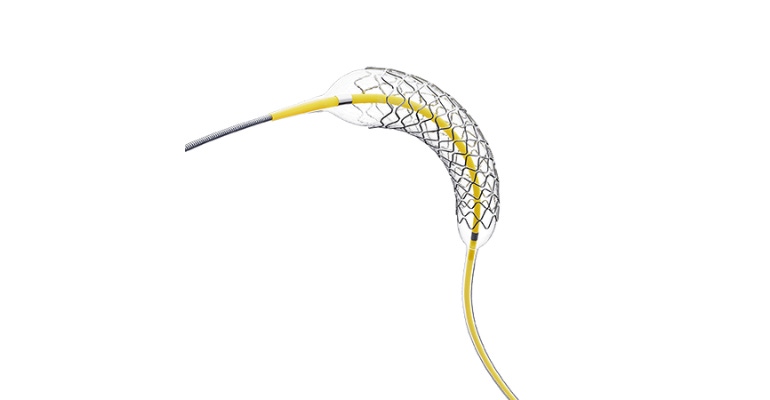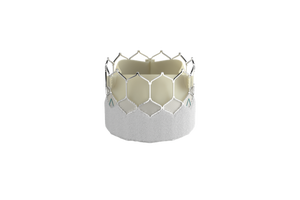Medtronic Takes DES to a New Frontier
The company has launched its newest drug-eluting stent (DES), the Onyx Frontier after recently scoring a CE mark for the next-generation device.
August 24, 2022

It's not "The Final Frontier" (you're welcome for that reference, Star Trek fans), but Medtronic's new drug-eluting coronary stent certainly qualifies as the next frontier in DES technology.
According to the company, the recently CE-marked Onyx Frontier DES offers an enhanced delivery system designed to improve deliverability and increase acute performance in the most challenging cases. The device, which leverages the same platform as the Resolute Onyx DES, won FDA approval in May.
Onyx Frontier DES’ meaningful design changes include a dual-layer balloon, lower crossing profile, and increased catheter flexibility leading to a 16% improvement in deliverability vs. the Resolute Onyx DES without compromising on radial strength, Medtronic noted. In addition to the delivery system enhancements, Onyx Frontier offers a broad size matrix to treat patients ranging from 2.0mm to 5.0mm diameters and its 4.50-5.00 mm sizes can be expanded to 6.00 mm, specifically designed to support extra-large vessels including the left main. Onyx Frontier inherits the same clinical data and indications of Resolute Onyx, including approval for bifurcation lesions, left main PCI, and one month of dual antiplatelet therapy (DAPT) in high bleeding risk patients.
"Following our launch in the U.S., we're thrilled to provide hospitals across western Europe and the globe with the Onyx Frontier DES, which has been thoughtfully designed with physicians' needs in mind," said Jason Weidman, senior vice president and president of Medtronic's coronary and renal denervation business unit.
The Onyx Frontier DES is used for the treatment of patients with coronary artery disease (CAD), which is caused by plaque buildup on the inside of the coronary arteries. These plaque deposits can narrow or clog the inside of the arteries, which decreases the supply of blood and oxygen to the heart. To help to restore blood flow, a physician may use a stent (a flexible metal scaffolding) that is delivered during a minimally invasive procedure to prop open the artery. A drug-eluting stent is the most common type of stent used to treat a blockage of the heart arteries.
Medtronic pipeline updates
Earlier this week, Medtronic CEO Geoff Martha updated investors on several key products in the pipeline.
Products he highlighted include: the Evolut FX transcatheter aortic valve replacement (TAVR) system, the Aurora extravascular implantable cardiac defibrillator (ICD), renal denervation technology, the Hugo robot, Touch Surgery Enterprise, Inceptiv evoked compound action potential (ECAP) closed-loop spinal cord stimulation (SCS) technology, and the company's diabetes offerings.
"There were several bright spots in the quarter across our businesses, including strength in pacing, cardiac surgery, U.S. core spine, neurovascular, diabetes in Europe, and strong overall growth in many emerging markets," Martha said, according to The Motley Fool's transcript of Medtronic's earnings call.
Still, he acknowledged that the company's fiscal first quarter was negatively impacted by supply chain disruptions, inflation, hospital labor shortages, COVID-related procedure delays/cancellations, and foreign exchange factors, as well as difficult comparisons to the prior year.
About the Author(s)
You May Also Like



.png?width=300&auto=webp&quality=80&disable=upscale)
